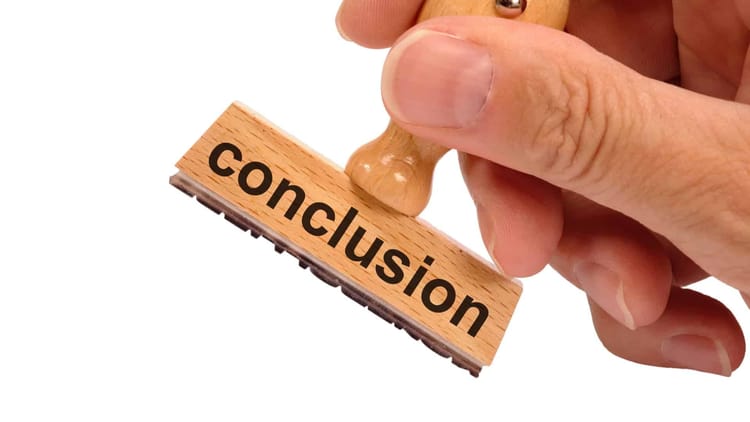Wisdom and Some Warnings (Ecclesiastes 9:13-10:20)

Just when you think you’re out of the tough passages in Ecclesiastes, you find another one. One of the books I’m reading on Ecclesiastes says about today’s passage: “Out of all the passages in Ecclesiastes, this one is probably the most difficult to interpret and preach” (Sidney Greidanus). It seems to lack coherence. It’s hard to tell what the overarching theme of this passage is. One commentator says, “The topics of rulers and speech, wise and foolish, recur throughout 9:13-10:20, but there is no overall design or movement of thought, and the topical clusterings seem merely associative.”
To which I say: Great! Bring it on! I think we need to be honest and to say that we sometimes find the Bible challenging to us. This is not the first passage that I’ve encountered that is tough. But sometimes those passages are the most rewarding as well. We give up far too easily sometimes. I don’t want to settle for what’s easy, because I believe that this passage has something important to say to us.
I struggled with this passage all week. And I believe it has a message for us today. I also believe that it’s a crucial message that we need to hear.
So let’s set the scene. The Teacher is taking a look at life and asking how to make sense of life in a fallen world in which nothing seems to make sense. He’s looking at life from every angle to see where he can find meaning. So far the prognosis has been pretty bleak. Overall, the Teacher has told us, apart from God, life is meaningless. Here and there he’s slipped in an optimistic note, and he has yet to reach his final conclusion, but overall he’s concluded that life is out of our control, and that it’s hard to find meaning in the places that we normally look: pleasure, accomplishment, and fame.
But we still have to live. In this passage the Teacher is going to tell us that there is one quality that we need to pursue if we are going to live well in this crazy world. Every single person here needs this quality. It’s absolutely essential. But then he’s going to give us two warnings about the use of this quality that we also need to hear.
So let’s look at what the Teacher says. What one quality do we need? And what two warnings do we need to hear as we build this quality into our lives?
The One Quality We Need
So first: what is the one quality that we really need if we are going to live well in this world that’s often frustrating and ultimately meaningless apart from God?
If you look at this passage, there is a theme that comes up over and over again. So, in chapter 9, the Teacher talks about a little city with few men that’s saved by the wisdom of a poor, wise man. That’s our first clue. The Teacher goes on in verse 16 to say that “wisdom is better than might.” You then begin to see this theme unfold in the rest of the passage in a number of contexts:
- You see examples of people who lack wisdom and who make complete fools of themselves (10:2-3). They can’t hide that they’re fools. They show their foolishness just by the way they walk down the street.
- You see what happens when people are put in positions of power when they lack wisdom (10:5-7). It does not go well. Fools do great damage when they’re put in positions of power.
- You see illustrations of what happens when people don’t use wisdom (10:8-11): digging a hole as a trap and falling into it yourself; breaking through a wall in haste and not looking for the snake that may be hiding there; doing dangerous work without taking the proper care; not maintaining the equipment you use in your work.
- You see the necessity of wisdom in our words (10:12-15). Wise words win favor; foolish words destroy.
- Finally, you see the necessity of wisdom in government (10:16-20). We need wise rulers who know when to feast and when to get to work.
You can see that the passage jumps all over the place, but there is a unifying theme. We need wisdom in our lives. The Teacher is showing us what happens when we let foolishness run rampant. It destroys societies. It destroys our workplaces. It destroys lives. In contrast, he’s saying that we need wisdom. Wisdom saves cities. Wisdom facilitates good work and wise government. In this frustrating and meaningless world, the one ingredient that we really need to live well is wisdom.
Let’s stop and think about this for a minute. The Teacher has said that life is brief and unpredictable and meaningless. You’d expect him to throw up his hands, then, and say, “What’s the use? Live however you please!” But note: the Teacher does not do that at all. He says the opposite. Life is brief and unpredictable. Because of this, we need wisdom!
Let’s be clear about this:
- We want might – brute strength and power. The Teacher says that wisdom is better (9:16).
- We want a voice. We want to be heard, and our views to be respected. The Teacher says that it’s better to speak quietly with wisdom than to shout from a position of power (9:17).
- We want power. Some people have access to armies and weapons. Others have access to other resources that we wish we had. The Teacher says that wisdom is better (9:18).
Wisdom, the Teacher says, can save cities. Wisdom can teach us what to say and what not to say. Wisdom can help us cope with bad political leadership. Wisdom is the one quality we need to survive in this world.
You may be wondering how to get wisdom. I’ll give you a hint: you’re doing it right now. Wisdom comes from understanding who made this world and how he made it to function. The book of Proverbs tells us that the fear of the Lord is the beginning of wisdom. It begins with understanding who God is and who we are. If you are going to live well in this world, as messed up as it is, you need wisdom. You need to access what God has said in this book about who he is, who we are, and how to live.
That, by the way, is why we spend so much time studying Scripture every week. We want to understand what God has revealed about this world and how to live, and then live in light of that truth.
So that’s the one indispensable quality that we need. If we are going to live well in this often meaningless world, we need wisdom.
Some Warnings
So that’s what he’s saying in this passage. We need wisdom. Application: pursue wisdom in every area of your life by living in light of what God has revealed, because wisdom is indispensable.
But the passage doesn’t end there. In this passage, the Teacher gives us two warnings that we need to hear. So let me give you the first warning:
Warning 1: Wisdom is limited.
This is important. Wisdom is essential, but wisdom is limited. Wisdom is not a panacea that will solve everything. You see this in the story that the Teacher tells at the end of chapter 9:
I have also seen this example of wisdom under the sun, and it seemed great to me. There was a little city with few men in it, and a great king came against it and besieged it, building great siegeworks against it. But there was found in it a poor, wise man, and he by his wisdom delivered the city. Yet no one remembered that poor man. But I say that wisdom is better than might, though the poor man’s wisdom is despised and his words are not heard.
It really seems that this is not a fictional story told to make a point. This probably happened. The Teacher retells the story. We don’t have a lot of details. We don’t know what this “poor, wise man” did to save the city. Whatever he did, his wisdom had a big impact. Even though the city had few men, even though the siege works were great, even though this man was not in a position of influence, his wisdom was enough to save the city. It’s a story that underlines the importance of wisdom. After reading a story like that, who wouldn’t want wisdom?
But it’s not all good news. “Yet no one remembered that poor man.” As soon as the danger passed, he was forgotten. Even worse, “the poor man’s wisdom is despised and his words are not heard.” It’s a pretty important note. This man’s wisdom was crucial and it made a real difference. Wisdom is valuable, but it can often go unnoticed, unappreciated, and unrewarded. The Teacher is telling us to pursue wisdom. It’s essential. But don’t assume that just because you build wisdom in your life that everyone will appreciate you, and that everything will go well. Pursue wisdom, but understand its limits.
Warning 2: A Little Folly Undoes Lots of Wisdom
There’s a second warning, and it’s where I want to spend a bit of time this morning. The second warning is this: Understand that it only takes a little folly to undo a massive amount of wisdom. You see this all throughout the passage, but most clearly in 10:1: “Dead flies make the perfumer’s ointment give off a stench; so a little folly outweighs wisdom and honor.” This is so important. The image is so strong that if you close your eyes you can almost smell it. The perfumer has used all of his skill to create an ointment that smells wonderful. There was nothing wrong with the fragrance. In fact, there was a lot to like about it. But the fragrance also attracted a swarm of flies. Some of the insects had died, and the stench of their carcasses had turned the perfume rancid. It doesn’t take many dead flies to ruin all the work of the apothecary.
So it is with wisdom. All the benefits of wisdom can be undone by just a little bit of evil. A single mistake can do lots of damage and nullify the work of much wisdom. Or, as somebody’s put it, “It is easier to make a stink than to create sweetness” (Derek Kidner). Philip Ryken puts it well:
Wisdom is sweet, like fragrant perfume. But it does not take much foolishness to turn things sour because folly stinks. All it takes is one rash word, one rude remark, one hasty decision, one foolish pleasure, or one angry outburst to spoil everything.
This is true. I’ve seen it. Years of wisdom can be undone by one unguarded moment of folly. I’ve seen friends undo years of work and ministry with one bad decision. A small amount of folly is enough to undo a massive amount of wisdom.
I want to close here and ask you what flies are buzzing around in your life right now that could die any minute and undo all the benefits of wisdom in your life. A few years ago I was heading to a retreat. One of my friends was going to be there. He pastored in Toronto. God seemed to be blessing his ministry. He moved to the States. He pastored some bigger churches there. Things seemed to be going well for him.
On the way to the retreat I got an email asking if I had heard the news about him. There had been a fly in his life. The fly had died, so to speak. As a result of one moment of folly, he did great damage to his marriage, his reputation, and his ministry. One moment of folly undid massive amounts of wisdom. To this day he’s never recovered.
One of the scariest things to realize is that it takes years to build something valuable. It only takes one minute to destroy something that’s taken years to build. It only takes a moment of folly to undo massive amounts of wisdom.
Let me describe some of the follies that could destroy all the benefits of wisdom in your life:
- Nobody knows it, but you regularly visit adult websites. It’s a habit now that you can’t seem to break.
- It’s not physical – yet – but you are developing an emotional attachment to someone who isn’t your spouse.
- You’re drunk in private but never when anybody important is around.
- Your financial dealings aren’t above board, but you haven’t been caught, and you’re hoping you never will be.
What we’re talking about here are secret sins. Right now these may be flies that aren’t yet dead and stinking up the place. Give it enough time, and they’re going to start to smell. Give them enough time, and they’ll outweigh any wisdom and honor you gain in your life. Spurgeon said:
Thou art a fool to think of harbouring a secret sin; and thou art a fool for this one reason, that thy sin is not a secret sin; it is known, and shall one day be revealed; perhaps very soon. Thy sin is not a secret; the eye of God hath seen it; thou hast sinned before his face…A man cannot commit a little sin in secret, without being by-and-by betrayed into a public sin. You cannot, sir, though you may think you can preserve a moderation in sin. If you commit one sin, it is like the melting of the lower glacier upon the Alps; the others must follow in time. As certainly as you heap one stone upon the cairn to-day, the next day you will cast another, until the heap, reared stone by stone, shall become a very pyramid…You will go there every day, such is the bewitching character of it; you cannot help it. You may as well ask the lion to let you put your head into his mouth. You cannot regulate his jaws: neither can you regulate sin. Once go into it, you cannot tell when you will be destroyed.
Take this seriously! A lifetime of wisdom can be undone in a moment of folly.
The Teacher is telling us that we need wisdom. But he’s giving us some warnings: wisdom has some weaknesses. And massive amounts of wisdom can be undone in a moment of weakness.
So what do we do with all of this?
First off, would you commit to pursuing wisdom? Particularly, would you commit in your life to reading God’s Word and allowing it to shape your life? Let’s do this together. Let’s commit to not just preaching it on Sundays but digging through it all week long, in small groups, in our families, and on our own. I want Scripture to reverberate in our church and in our lives. There is no other source of wisdom that comes close in helping us understand who God is, who we are, and how to live in this world. It’s not unimportant. It’s not kind of important. It’s very important that we know and understand God’s Word.
Second, most of us are aware of an area of folly in our lives that has the potential to do major damage in our lives. I don’t know what the area is in your life, but I know that all of us have at least one. I don’t want to see your life destroyed. Here’s what I’m going to ask you: bring your secret sin into the open. Secret sins are like mushrooms: they grow best in the dark. Don’t harbor secret sins. Don’t struggle alone. Spurgeon said:
Christians must not tolerate secret sins. We must not harbour traitors; it is high treason against the King of Heaven. Let us drag them out to light, and offer them upon the altar, giving up the dearest of our secret sins at the will and bidding of God. There is a great danger in a little secret sin; therefore avoid it, pass not by it, turn from it and shun it; and God give thee grace to overcome it!
Finally, look to Jesus. The solution is not to look more to ourselves and our own wisdom. The solution is actually to look more at Christ. Tullian Tchividjian put it best:
The hard work of Christian growth, therefore, is to think less of me and my performance and more of Jesus and his performance for me. Ironically, when we focus mostly on our need to get better we actually get worse. We become neurotic and self-absorbed. Preoccupation with my effort over God’s effort for me makes me increasingly self-centered and morbidly introspective.
You could state it this way: Sanctification is the daily hard work of going back to the reality of our justification–receiving Christ’s words, “It is finished” into new and deeper parts of our being every day, into our rebellious regions of unbelief. It’s going back to the certainty of our objectively secured pardon in Christ and hitting the refresh button a thousand times a day. Or, as Martin Luther so aptly put it in his Lectures on Romans, “To progress is always to begin again.” Real spiritual progress, in other words, requires a daily going backwards.
The way forward is actually the way back to the cross. Daily return to what Christ has done. Revel in his wisdom. Work his work into your life. “Preach that to yourself every day,” Tullian says, “and you’ll increasingly experience the scandalous freedom that Jesus paid so dearly to secure for you.”





